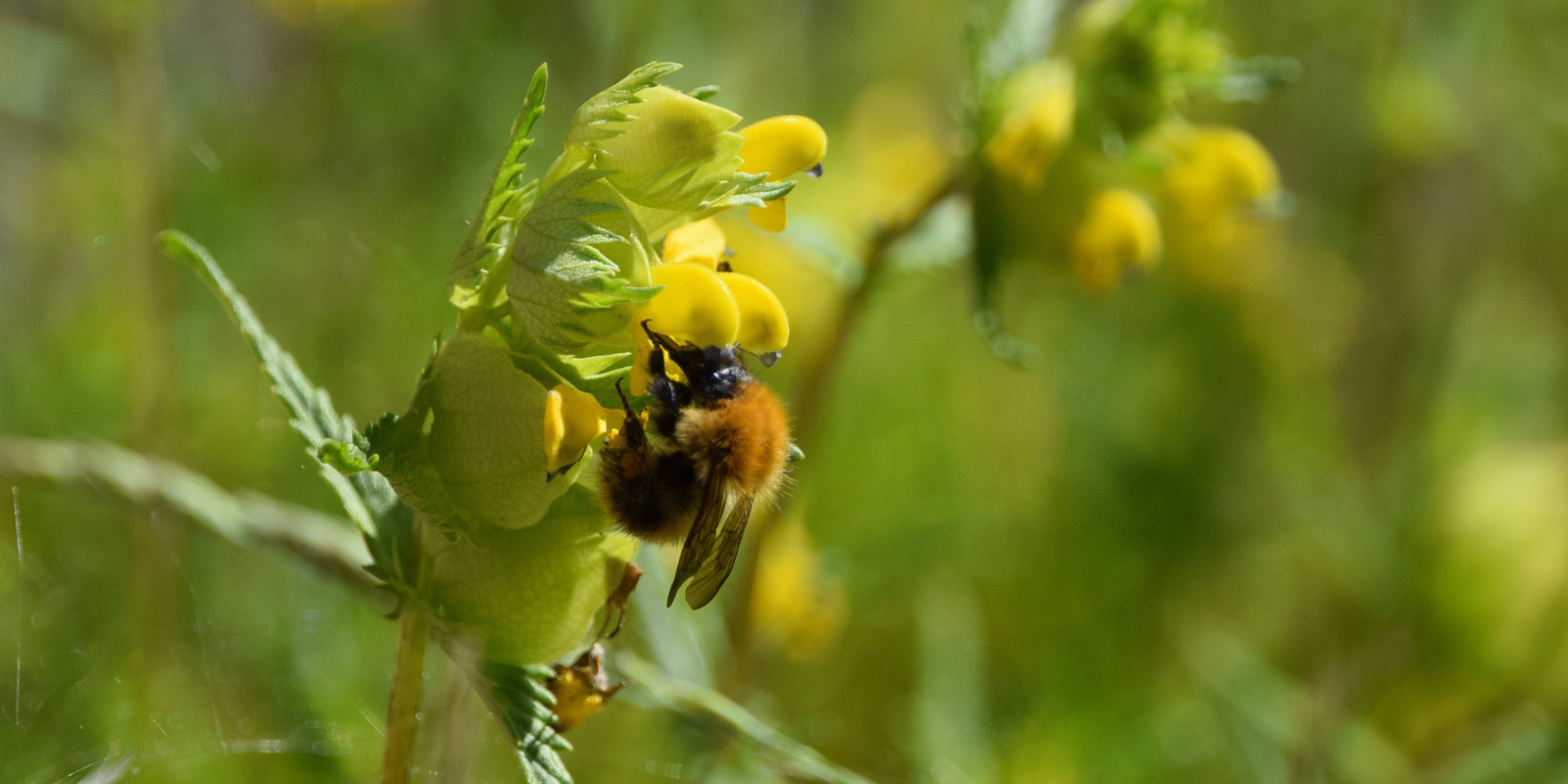It’s Don't Step on a Bee Day! Today, we are thinking about all the ways we can help our bee populations (as well as not stepping on them!)
Don't Step on a Bee Day takes place every July 10th, to raise awareness of the vital importance of bees in our ecosystem, and how we can protect and support them. It is a reminder for us to appreciate the amazing and tireless work that bees do, and to ensure that we advocate for safe, bee-friendly environments.
Over a third of everything we eat is dependent on the work that our native bees do in pollinating our plants. Bees are a hugely important part of the planet’s ecosystem, and yet they are still under threat like never before due to many factors, including loss of habitat.
hhh

hhh
Here at The Future Forest Company, we are working towards addressing this crisis by restoring and planting wildflower meadows. We’ve been talking to our Head of Biodiversity, Lindsay Mackinlay, about how our wildflower planting helps bees.
“Many of the wildflowers we plant provide food for bees, as indeed do some of our shrubs, like hawthorn,” Lindsay tells us. “Yellow rattle is brilliant as not only does it aid the growth of wildflowers in meadows, but it is popular with bumblebees with long tongues, like garden bumblebees.
hhh

hhh
“Other wildflowers that appear to be popular with bees include common knapweed, selfheal, devil's-bit scabious and common valerian... all of which we either plug plant or encourage with sensitive management. Raspberry is a real favourite and is one of the species in our woodland areas that will benefit from our light-touch management. We tolerate thistles in some places where they do not cause any management issues for our neighbours, and these can be covered in bees when in flower!”
hhh

hhh
Our sensitive woodland management practices are also carried out with pollinators like bees in mind. Lindsay says, “Some of the wilder, longer vegetation around our woodlands is also good for bees, as it provides shelter and cover for bees to establish their nests. Where we have cleared gorse as part of our work to conserve the sticky catchfly and northern brown argus butterfly at Dumyat, we get a lot of foxgloves growing and the bees love that too! Indeed, I have watched bees visit the sticky catchfly flowers whilst surveying that rare flower at Dumyat.”
Join us on our mission to protect pollinators today! Choose the Wildflower Meadow Planting Sponsorship to help conserve, restore and create wildflower meadows. This Don’t Step on a Bee Day, support wildflower meadow sowing, planting and management and help the recovery of our bee and other vital pollinator populations.
